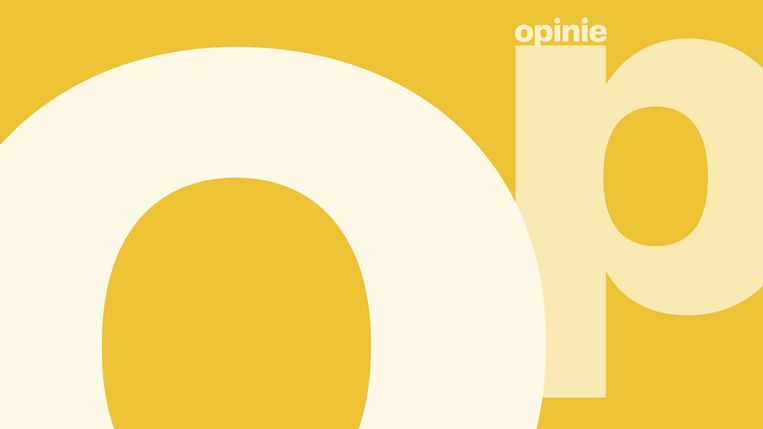The boundaries between “Dutch” and non-Dutch are very difficult, says Sereno Corvers. Migrants should be granted political rights (and obligations) more quickly.
Do you support discrimination based on origin? While most people would answer this question with a flat no, this is what happens in modern countries. This needs explanation. As a Limburger, I feel more culturally connected to someone from Hasselt, Belgium than to someone from Vriesenveen, Netherlands. However, there is a national border between the towns and Hasselt. This limit has consequences. Belgians have fewer rights in the Netherlands and vice versa. We forget that those limits are arbitrary.
The consequences of the border are much more serious if you are not from Western Europe. For example, Poles working in the Netherlands receive lower wages, or are kicked out of their homes if they lose their jobs. The Dutch use immigrants to do their dirty, heavy work, often for poor wages. And legalize this inequality? Citizenship and the social nation-state.
No rights, but obligations
Citizenship takes many forms, but the best known is formal citizenship. This is the citizenship you get if at least one parent is Dutch. Thank you, dad. This citizenship has rights and duties. For example, you are entitled to an AOW pension and must abide by the law. Are you not Dutch and are you stranded in the Netherlands? So, you don’t have these rights, but you do have certain obligations.
This is unfair, because illegal immigrants or immigrants also contribute to our society by providing cheap labour. Think Polish strawberry pickers or Afghan asylum seekers working undisclosed in a kebab shop. In addition, everyone who lives in the Netherlands contributes to political and social institutions simply by being here and interacting with the environment.
The nation-state transforms its population into a unitary entity. They create an imaginary society through a specific vision of history, expressions such as “Dutch” and “common man” and the exclusion of non-natives. This makes it seem as though the Dutchman has always been there. This is not true, it is the nature of society to combine differences.
So-called wealth seekers
The social nation-state also ensures that the borders of the state are rock solid. To maintain social security, states must reject the so-called “beneficiaries” and “wealth seekers”.
Can we still think outside the current idea of citizenship? There are philosophers who think so. In the political-philosophical movement of radical democracy, there is a form of political citizenship that recognizes and preserves the plurality of the state, and that transcends social and formal citizenship.
Whoever challenges the foundations of the political system exercises this political citizenship. Think of the environmental activists of the 1980s or modern thinkers who want rights to the North Sea. Or to the Sans Papiers in Brussels who are on hunger strike to present their fate to the world. It forces politicians to respond, while non-response is also reactive. They (as individuals or as a group) put a problem on the map that previously had no place. In this way they challenge the foundations of the nation-state.
This form of citizenship does not have the same rights and obligations as formal citizenship. Otherwise we will have to abolish the social national state. We should not throw the baby out with the bathwater. However, non-citizens, that is, the excluded people on whom society depends in part, should at least have the right to participate as legitimate partners in the political discussion.
Political citizenship is not only important for non-citizens, but for everyone. Democratic institutions tend to get rusty. And when they are challenged, it opens up opportunities for change, painting outside the lines our democracy desperately needs, because real change comes from outside the political institutions.
Can anyone who sets foot in the Netherlands simply obtain political citizenship? not this. To avoid global citizenship, only those who intend to stay here longer or who have to stay here longer due to circumstances can obtain political citizenship. The exact period is open for discussion. What we might ask of citizen politicians is that they accept the legal system at least in part. Revolutions are often not in favor of anyone. But we must get rid of the lack of political rights for people who are not citizens.
Cierino Corvers is a political philosopher
Read also:
VVD returns to the classic themes of migration, economics and security
As expected, the VVD made a big fuss about immigration in its election manifesto. Liberals say goodbye to the distributive law.
Read also:
Real control over immigration? The VVD cares for 10 percent of asylum seekers
The spearhead of the VVD elections is purely symbolic politics, says Leiden University professor Leo Lucassen, who is also the director of the International Institute for Peace and Security. Only Next can stop immigration, especially migrant workers. But do liberals want that?

Zombie specialist. Friendly twitter guru. Internet buff. Organizer. Coffee trailblazer. Lifelong problem solver. Certified travel enthusiast. Alcohol geek.

